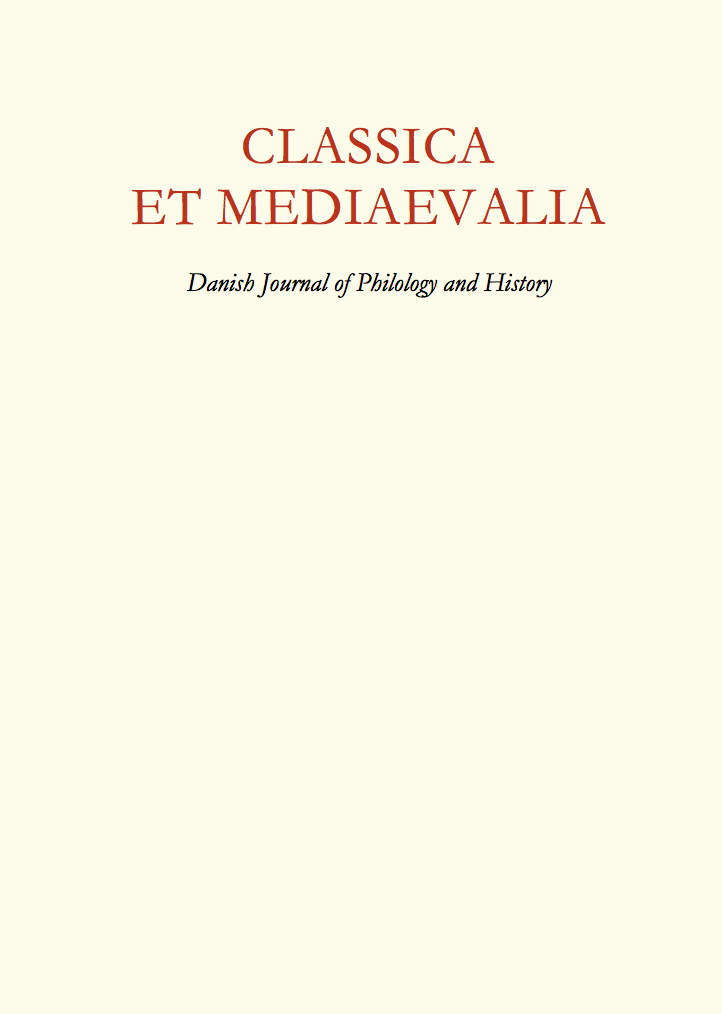Criticism and Rework of Homeric Narrative in Dio's Trojan Discourse
DOI:
https://doi.org/10.7146/classicaetmediaevalia.v68i0.113091Abstract
Dio Chrysostom, in his Trojan Discourse (Speech 11) rewrites the story of the Trojan War in a new and different way (with Trojans’ victory over Greeks, the murder of Hector by Achilles, and so on), in contrast with the tale of the Iliad and under the pretense of an historical reconstruction. He preys on Homeric narrative techniques (such as the selective and motivated plot of the Iliad, and the first-person tale in the Odyssey), in order to disprove the traditional version of the legend and to pave the way for a new view. Dio takes a metaliterary and intertextual approach to Homeric epics, insofar as he criticizes and deconstructs their narratives (bearing in mind Homeric criticism by Aristotle and by Alexandrine grammarians), in order to rebuild the story anew. He also provides a specimen of generic crossing, since he frames an epic subject in the context of a prose speech that belongs to epidictic oratory and that simulates some historiographical practices.
Downloads
Published
How to Cite
Issue
Section
License
Authors who publish with this journal agree to the following terms:
- Authors retain copyright and grant the journal right of first publication with the work simultaneously licensed under a Creative Commons Attribution License that allows others to share the work with an acknowledgement of the work's authorship and initial publication in this journal.
- Authors are able to enter into separate, additional contractual arrangements for the non-exclusive distribution of the journal's published version of the work (e.g., post it to an institutional repository or publish it in a book), with an acknowledgement of its initial publication in this journal.
- Authors are permitted and encouraged to post their work online (e.g., in institutional repositories or on their website) prior to and during the submission process, as it can lead to productive exchanges, as well as earlier and greater citation of published work (see The Effect of Open Access).





